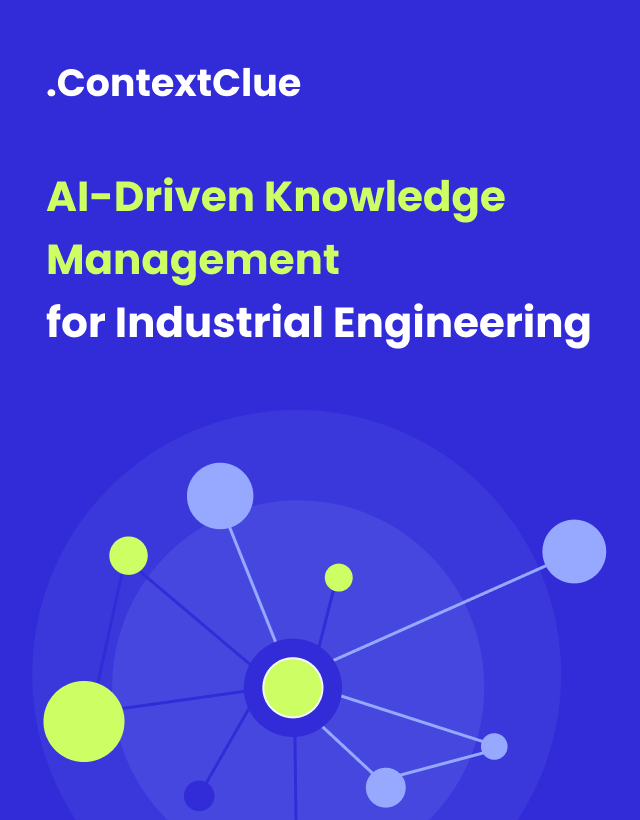
September 23, 2025
Why 74% of AI Initiatives Fail (And How the Right Approach Changes Everything)
Author:

CSO & Co-Founder
Reading time:
5 minutes
The AI consulting landscape exploded overnight when ChatGPT made headlines. Suddenly, every software company became an “AI-first” consultancy, promising revolutionary transformation through artificial intelligence.
Yet here’s the sobering reality: only 26% of companies using AI have progressed beyond proof-of-concept to deliver measurable business value, according to BCG‘s 2024 research.
For executives and AI decision-makers, the critical question isn’t whether to adopt AI but rather how to implement it strategically while avoiding the costly pitfalls that derail most initiatives.
The $3.2 Million Question: What Goes Wrong?
The problem isn’t technological capability. It’s the massive disconnect between AI’s potential and business execution.
- The Electronics Retailer: Implemented AI-driven demand forecasting that consistently missed the mark, leading to $3.2 million in losses from overstocking and missed sales. They eventually reverted to simpler methods that delivered better results. (source)
- Healthcare’s False Start: Early AI chatbots saw minimal adoption until a strategic pivot transformed them into powerful triage tools, reducing hospital readmissions by 25% and cutting wait times by 15%. (source)
- Manufacturing’s Mixed Results: A predictive maintenance system delivered only 30% of projected savings – but still cut maintenance costs by 30% and unplanned downtime by 50%. (source)
The pattern is clear: success depends not on AI sophistication, but on strategic business alignment.
The Hidden Complexity of AI Implementation
Unlike traditional software projects, AI initiatives face unique operational challenges that most consultants underestimate:
- Model performance degrades over time without proper monitoring
- Production data pipelines require enterprise-grade reliability
- Regulatory compliance creates additional governance layers
- Legacy system integration demands specialized expertise
- AI outputs need validation to prevent costly errors
The organizations achieving real transformation understand that impressive demos don’t automatically translate to production success.
Why Most AI Consulting Falls Short
The industry is flooded with two problematic approaches:
Traditional Consultants understand business strategy but lack deep technical implementation knowledge. They deliver PowerPoint recommendations that leave you searching for execution partners.
Technical Vendors can build sophisticated AI models, but miss crucial business context. Their solutions often fail because they don’t align with operational realities.
The result is the expensive pilots that never scale, promising demos that can’t handle real-world complexity, and strategic recommendations with no accountability for feasibility.
A Fundamentally Different Approach
At Addepto, we’ve spent seven years developing a methodology that bridges this gap. Having delivered 100+ AI projects across industries, earning recognition from Forbes as among the world’s best AI consulting companies and inclusion in Deloitte’s Technology Fast 50, we’ve learned that successful implementation requires something most consultants can’t provide: unified business and technical expertise with complete accountability for results.
Our approach addresses the core problems that cause AI initiatives to fail:
- Beyond strategy: Detailed implementation roadmaps, not just recommendations
- Production-first: solutions designed for enterprise operations, not lab conditions
- Feasibility guarantee: Every recommendation comes with our professional accountability
- Business alignment: Technical solutions that deliver measurable ROI, not just impressive capabilities
Real Results, Not Just Promises
- InPost SA: Transformed demand forecasting across their parcel network, enabling optimized resource allocation and enhanced pricing strategies.
- Polish Retail Chain: Achieved 91% accuracy in automated product processing, dramatically reducing manual effort and processing time.
- Aviation Services: Revolutionized safety documentation processes, improving operator efficiency while reducing errors in critical reports.
These aren’t pilot projects or proof-of-concepts- they’re production systems handling real business operations daily.

Read more about our case studies to see detailed project outcomes.

When Honesty Matters Most
Not every problem needs AI. We regularly recommend simpler solutions when they deliver better ROI. Sometimes classical statistical methods outperform complex neural networks. Often, traditional automation solves the problem more reliably than machine learning.
As our Data Scientist, Jakub Berezowski, noted in a recent project:
“We deliberately chose simplicity over complexity in selecting algorithms, as it turned out that classical, we can say even old-school statistical algorithms, when applied well, deliver matching results at a fraction of the cost compared to the state-of-the-art ones.”
(Read the full case study)
This honest assessment protects our clients from unnecessary complexity and ensures every AI investment delivers genuine value.
The Strategic Advantage Awaits
The organizations leading their industries’ AI transformation share one characteristic: they approach implementation strategically, focusing on sustainable business outcomes rather than technological novelty.
But strategic implementation requires more than good intentions – it demands proven methodologies, production expertise, and complete accountability for results.
Coming Soon: The Complete Strategic Framework
We’re preparing a comprehensive whitepaper that reveals our battle-tested methodology for AI implementation success. This isn’t another high-level strategy document but a detailed operational guide covering:
- Complete case studies with quantified ROI analysis and lessons learned
- Implementation methodologies that guarantee production success
- Technical frameworks for enterprise-grade deployment
- Risk mitigation strategies that prevent costly failures
- Governance blueprints for sustainable AI adoption
- Industry-specific insights from 100+ real-world projects
The whitepaper launches in the coming weeks, providing executives and technical leaders with everything needed to avoid the pitfalls that derail most AI initiatives.
The Window is Closing
While 74% of organizations struggle with AI implementation, the 26% achieving success are building competitive advantages that will be difficult to overcome.
The question isn’t whether AI will transform your industry – it’s whether you’ll lead that transformation or be left responding to competitors who moved strategically while others were still experimenting.
Don’t just take our word for it – see what industry leaders say about working with us. Check our verified client testimonials on Clutch.co, where we maintain a 4.9/5 rating with detailed reviews from actual project participants.
Ready to join the 26% achieving measurable AI transformation?
Contact us to discuss your specific challenges.
Category:






